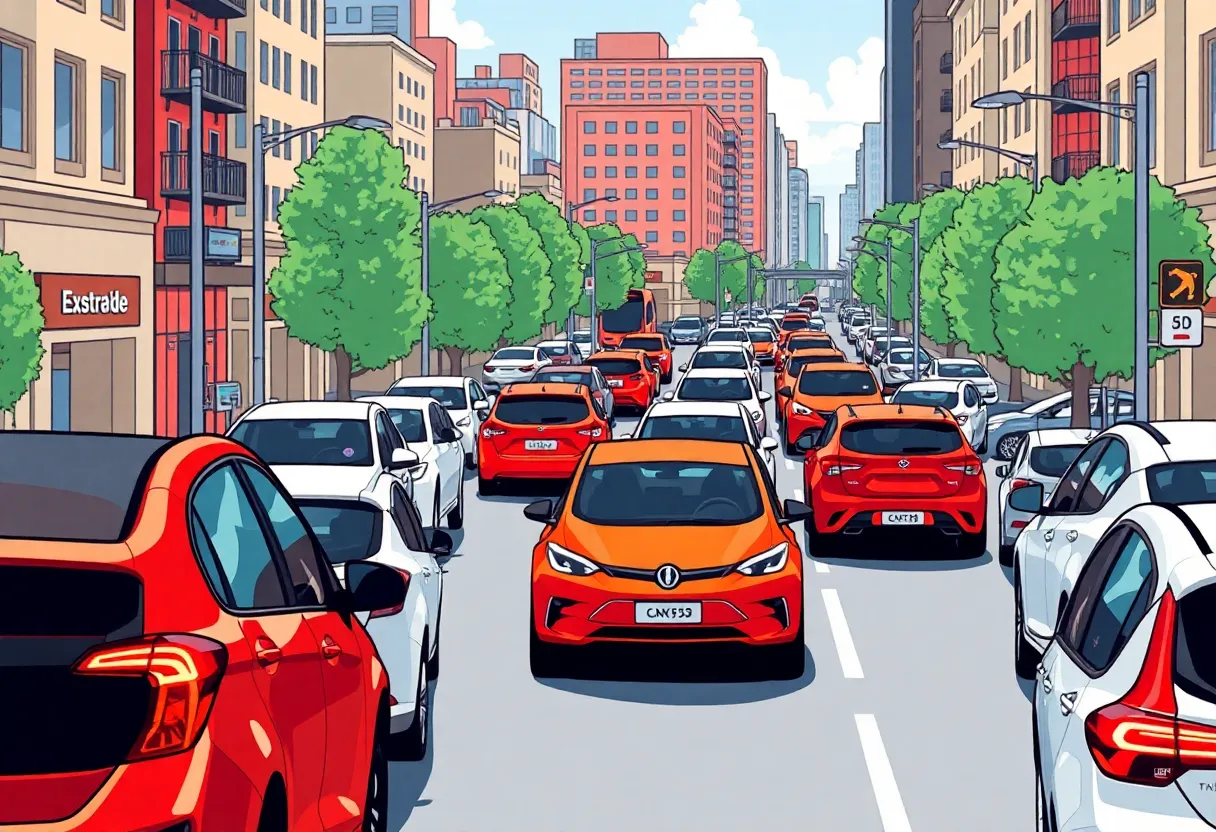News Summary
The U.S. Senate has voted 51-44 to revoke California’s plan to ban gasoline-powered vehicles by 2035, prompting Governor Gavin Newsom to consider legal action. The ban was initially intended to reduce greenhouse gas emissions and promote electric vehicles. Newsom has criticized the Senate’s decision, labeling it a threat to climate progress and state rights, while Republican senators hailed the vote as a triumph against government overreach. The decision reflects ongoing tensions in U.S. climate policy and raises questions about the future of electric vehicle adoption in California.
California—In a significant legislative move, the U.S. Senate has voted to revoke California’s ambitious plan to ban the sale of gasoline-powered cars by 2035. The vote concluded with a tally of 51-44, utilizing the Congressional Review Act to overturn California’s environmental regulations aimed at tackling climate change and promoting electric vehicles (EVs). Governor Gavin Newsom has condemned the Senate’s decision and announced that he, along with Attorney General Rob Bonta, will pursue legal action to block this congressional initiative.
The ban on gasoline-powered vehicles was first introduced by Governor Newsom in an executive order issued in 2020, reflecting California’s commitment to reducing greenhouse gas emissions. This plan aimed to transition the state towards a more sustainable future by encouraging the adoption of electric vehicles to mitigate the effects of climate change. Support for California’s authority to regulate its own emissions stems from a waiver granted by the Environmental Protection Agency (EPA) in December 2020, which was in place before the current Biden administration took over.
Governor Newsom has characterized the Senate’s revocation of the ban as a dramatic shift that could undermine the nation’s leadership in combating climate change and infringe upon states’ rights. He has labeled the action a “nuclear option” that erodes long-standing Senate protocols and negatively affects California’s climate agenda. Highlighting the importance of future generations, Newsom criticized the Senate’s decision as an act of “theft” against them, suggesting it prioritizes short-term political gains over long-term environmental health.
Furthermore, Newsom claims the Senate voted illegally, arguing that it disregarded the findings from the Senate parliamentarian and the Government Accountability Office regarding the legitimacy of the vote. He drew attention to the inconsistency of the Senate’s position compared to past Republican leaders, who were known for their support of environmental protection initiatives.
Republican senators, however, celebrated the revocation as a win against what they described as an overreach of Newsom’s climate policies. They argue that the gasoline ban represents excessive government control and does not prioritize practical climate solutions. California Assembly Minority Leader James Gallagher criticized the ban as restrictive and not genuinely focused on addressing climate issues.
Efforts in the House to overturn Governor Newsom’s electric vehicle mandate were led by Representative Kevin Kiley, who argued for more freedom of choice for consumers when selecting their vehicles. Only one Democratic senator, Elissa Slotkin, sided with the Republicans, motivated by concerns from her constituents who work in the auto industry.
As the debate over the gas car ban unfolds, data reveals that while EV technology is rapidly advancing, sales in California have begun to stagnate, holding at approximately 20% market share in recent months. Additionally, the market share for Tesla—a significant player in the electric vehicle segment—declined by 12% in the first quarter of the year, a situation attributed in part to controversies related to its CEO, Elon Musk.
Industry experts, including Brian Maas from the California New Car Dealers Association, caution that current electric vehicle mandates may prove unrealistic if manufacturers struggle to meet future targets. Newsom’s administration has also proposed regulatory measures aimed at controlling high gas prices, which have been a contentious issue in California. Critics contend that the state’s elevated gas taxes contribute to these high prices, complicating the narrative around energy policies.
In response to the ongoing debate, Newsom is expected to implement measures intended to stabilize gas prices and manage the gasoline supply across California. The complexities surrounding the revocation of the gas car ban reflect broader tensions between climate policy aspirations and the realities of energy consumption and infrastructure in California.
Deeper Dive: News & Info About This Topic
- CBS News: California plan gas car ban could hit dead end
- Wikipedia: Climate change in the United States
- Sacramento Bee: Article on California politics
- Google Search: California gas car ban
- MSN: Senate votes to block California ban on gasoline-fueled cars
- Google Scholar: California electric vehicle mandates
- Sacramento Bee: Another article on gas car regulations
- Encyclopedia Britannica: Automobile
- California Globe: Vote to increase CA gas prices
- Google News: Governor Gavin Newsom

Author: STAFF HERE MISSION VIEJO WRITER
The MISSION VIEJO STAFF WRITER represents the experienced team at HEREMissionViejo.com, your go-to source for actionable local news and information in Mission Viejo, Orange County, and beyond. Specializing in "news you can use," we cover essential topics like product reviews for personal and business needs, local business directories, politics, real estate trends, neighborhood insights, and state news affecting the area—with deep expertise drawn from years of dedicated reporting and strong community input, including local press releases and business updates. We deliver top reporting on high-value events such as Oso Fit 5K Fun Run and Community Health Fair, Walk Against Drugs & Community Fair, and National Night Out. Our coverage extends to key organizations like the Mission Viejo Chamber of Commerce and Providence Mission Hospital Mission Viejo, plus leading businesses in retail and education that power the local economy such as The Shops at Mission Viejo, Capistrano Unified School District, and Amazon Delivery Station. As part of the broader HERE network, including HEREAnaheim.com, HEREBeverlyHills.com, HERECostaMesa.com, HERECoronado.com, HEREHollywood.com, HEREHuntingtonBeach.com, HERELongBeach.com, HERELosAngeles.com, HERESanDiego.com, and HERESantaAna.com, we provide comprehensive, credible insights into California's dynamic landscape.


